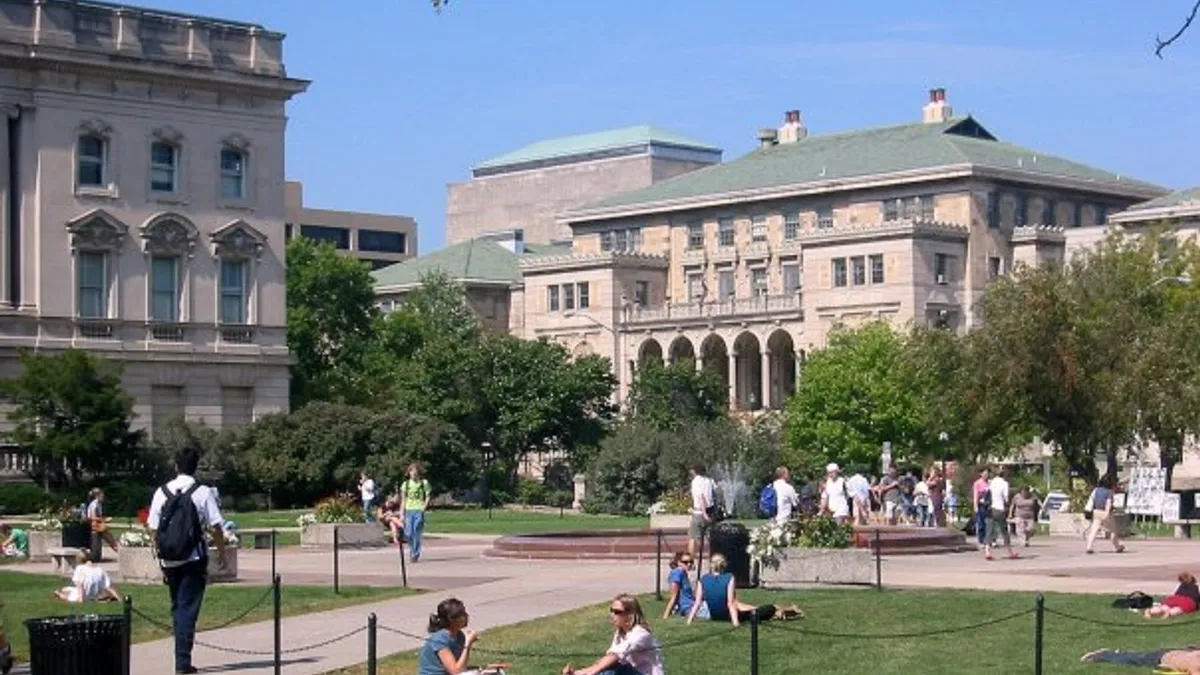Dive Brief:
- College and university faculty are increasingly uniting to show their displeasure with new governance styles and administrators hired for their corporate-style leadership.
- The Capital Times reports the University of Wisconsin-Madison’s no-confidence vote this week joins a trend in which one-third of the 150 no-confidence initiatives since 1989 have happened in the last four years.
- Sean McKiniss, who tracks no-confidence votes at the nation’s postsecondary schools, has found about half of the presidents targeted in such initiatives leave their posts within a year, while others continue to enjoy long tenures.
Dive Insight:
UW-Madison faculty called the no-confidence vote to protest changes to tenure policy approved by System President Ray Cross and the board of regents. In announcing the vote, faculty recalled a 2015 statement by Cross to resign if he failed to protect tenure, which was under attack by the state legislature. From the beginning, faculty have not expected much to change because of the no-confidence vote, but they wanted to take a stand and voice their collective discontent.
Other notable no-confidence votes in the last year have targeted the newly appointed businessman president at the University of Iowa, J. Bruce Harreld, the board chair of New York’s Mount Saint Mary's College, which has been embroiled in a bit of an identity crisis, and Ithaca College President Tom Rochon, who resigned following no-confidence votes from faculty and students during racial climate protests.









